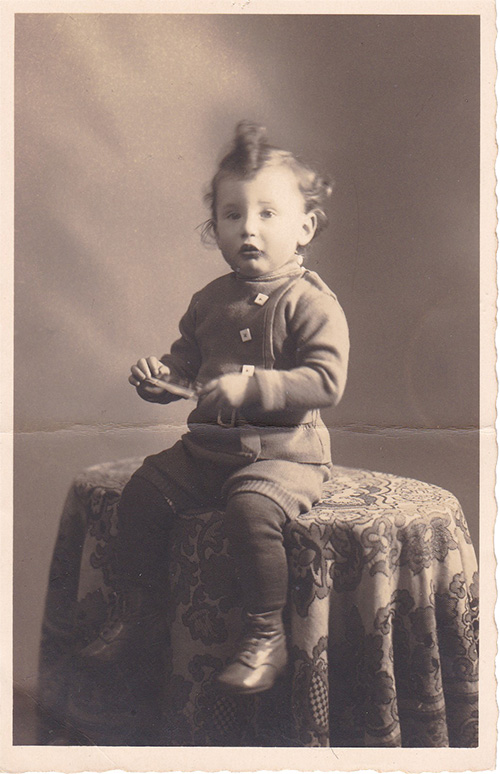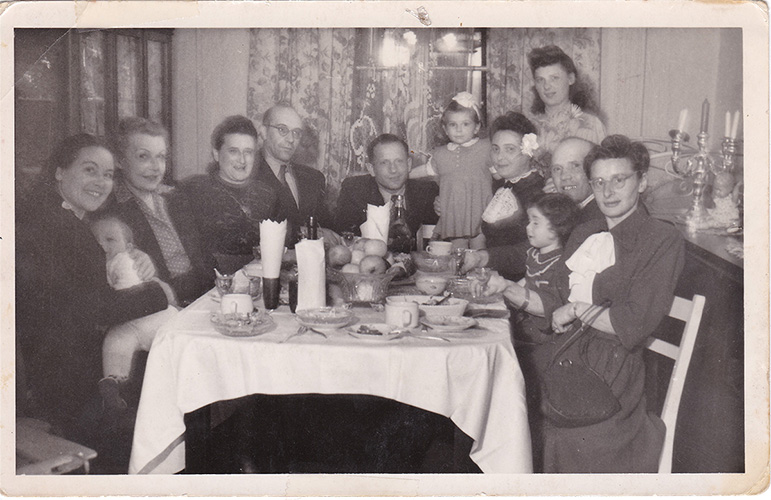Semen Zinger
Biography
Semen Zinger was born in Kruti, a small village near the Ukrainian port city of Odessa. During his youth, Odessa had a Jewish population of 180,000 and was regarded as the chief center of the Zionist movement in the Soviet Union. In contrast, Semen’s small village was an assortment of nondescript houses and small shops built around the intersection of two crossroads.
Semen’s father, Abraham ben Moshe, was a craftsman who made wooden wagon wheels for horse-drawn vehicles. He worked long hours with handmade tools, only to die at a young age leaving his wife Surra to care of their seven-year-old son.
During Semen’s childhood, Joseph Stalin ruled the Russian Empire, with a policy of assimilation for all. It began with forced liquidation of Jewish religious organizations and escalated into a full-scale governmental assault on traditional Jewish culture and education. Religious instruction of children was prohibited, schools and yeshivot were closed, synagogues were seized and converted into secular buildings, rabbis and religious leaders were taxed, and the use of the Hebrew language was banned. Still, Semen was able to obtain a rudimentary Jewish education, since most of the policies were confined to the more populated areas.
Semen’s formal education was permanently interrupted in June 1941, when Romanian forces, in concert with their Nazi allies, attacked and occupied Bukovina, Bessarabia, and the western Ukraine. Odessa surrendered on October 16, 1941. The majority of the Ukrainian population had detested the Communist regime for its policies that closed their churches, persecuted their leaders, and wiped out their upper class. When the Nazis arrived, they were greeted as liberators.
For the Jews, other minorities, communists, freethinkers, and patriots, there was no illusion about the true intent of National Socialism. The Jews of the city were seen as subversives and within one week, nearly one-third were either executed on the pretext of being “communist agents” or simply murdered in reprisal for acts of sabotage committed against the city’s occupying forces. Many were forced to work as slave laborers.
The Romanian forces, on the other hand, were content to deport the opposition and let nature take its course. To that end, an administrative area between the Dniester and Bug Rivers in the area of southern Ukraine known as Transnistria was created in December 1941, with Odessa as its capital city.
Fifteen-year-old Semen and his mother were deported to a ghetto in the city of Rybnitsa, an industrial center located on the east bank of the Dniester River. The ghetto had a population of about 3,000 when Semen arrived, but random executions, deportations, starvation, and disease reduced the population to less than half that by the time they were liberated by the Red Army a little more than two years later in March 1944. The Romanian Army evacuated Odessa on April 10, 1944 without firing a shot.
For Semen, liberation by the Red Army closed one chapter of his life, only to open another.
Eighteen-year-old Semen was drafted into the Red Army. He was assigned to an artillery unit attached to the 1st Ukrainian Front, a group consisting of one million men. Semen was posted to the eight-man crew of a Soviet 152mm howitzer that weighed nearly eight tons.
The Red Army’s final assault on the German homeland began on January 12, 1945, when the 1st Ukrainian Front swept through southern Poland and Upper and Lower Silesia. The final assault on the German capital began on April 16, 1945 and by April 30, the Reichstag was captured.
Semen’s unit saw action daily, including one incident when shrapnel from a nearby explosion killed five of Semen’s comrades, including the gun’s commander, leaving him and only two others to keep their howitzer in action. In recognition of his overall contribution to the Soviet people’s victory over National Socialism, Semen became one of 160,000 Jewish solders in the Red Army to receive a military service decoration.
Semen was discharged from the Red Army in 1950, after six years of faithful service.
Taken from an interview by Larry Newman, found in “Shared Memories” of ESL Students of Collat Jewish Family Services, June 2004.
More Information
Sura Leah and Avram Zinger
(Both murdered in Holocaust)
Kruti (Ukraine)
Krutnoye (Russian)
Krata (Yiddish)
Krute (Polish)
Krutyye
Ehleal Zinger
7-8 years younger; survived and moved to Germany
Fania Zinger
younger
Raisa Borisovna Zinger
(1930 Rybnitsa, Moldova – 2002 Birmingham, AL)
Boris S. Zinger (Evdiniya “Dina” Burtman)
Alexander (Alex or Alik) S. Zinger (Ella/Alla)
(1962-2006)
Rybnitsa Ghetto, 1941-1944
Fought with Soviet Red Army 1944-1950
Rybnitsa Ghetto



